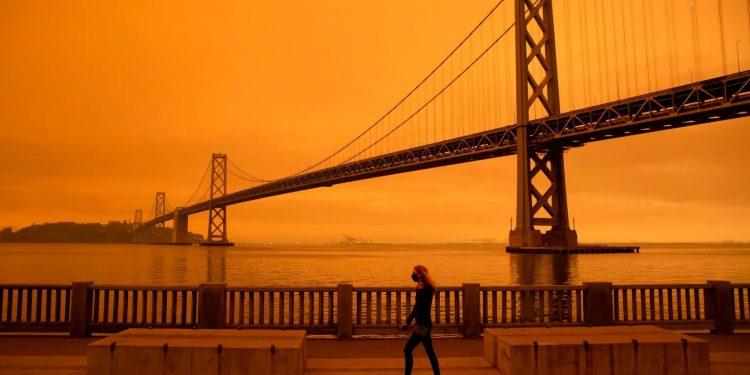Smoke from intense wildfires in Canada has made its way to the U.S. East Coast, causing disruptions and health concerns. Schools across the region canceled outdoor activities, and millions of Americans were advised to stay indoors as a thick yellowish haze blanketed cities.
The U.S. National Weather Service issued air quality alerts for the entire Atlantic seaboard, cautioning residents about potential health problems caused by the high concentration of fine particulate matter in the atmosphere. Health officials from Vermont to South Carolina, and as far as Ohio and Kansas, warned residents about the risks of spending time outdoors.
U.S. President Joe Biden took to Twitter to emphasize the importance of listening to local authorities and protecting oneself from the dangerous air pollution, particularly for those with health conditions.
The smoky conditions caused a dramatic reduction in visibility, leading to the slowing or halting of flights into New York City’s LaGuardia International Airport and Newark Liberty International Airport. Major League Baseball games were postponed, and schools canceled outdoor activities, including sports practices, field trips, and recesses.
New York Governor Kathy Hochul referred to the situation as an “emergency crisis,” with air pollution levels in parts of the state being eight times above normal. She warned that the foul air was likely to persist for several days, urging people to prepare for the long haul.
Residents in affected areas reported feeling unwell due to the smoke and soot. The dense haze made breathing difficult for many, leading to discomfort and health issues. Some individuals, such as landscaper Chris Ricciardi, reduced their working hours to minimize exposure to the unhealthy air. The impact extended beyond outdoor activities, with even a Broadway matinee halted due to an actress experiencing difficulty breathing.
The smoke originated from Canadian wildfires, which began unusually early and intensified due to persistent warm and dry conditions. The country is facing its worst-ever wildfire season, with wildfires spreading across various provinces, including Quebec. The smoky haze covered North American cities, causing a yellowish tinge in the sky and a distinct smell of burning wood.
Wildfire smoke has been associated with adverse health effects, including increased rates of heart attacks, strokes, respiratory conditions, and eye and skin irritation. Concerned residents rushed to purchase air purifiers and masks, while others compared the situation to the wildfires that plagued California in 2020.
The ongoing crisis emphasizes the impact of climate change, with the smoky conditions serving as a stark visual reminder of the consequences of global warming. As the wildfires continue to burn in Canada, the U.S. East Coast will have to endure the challenges posed by the lingering smoke, emphasizing the need for precautionary measures and public health awareness.



























